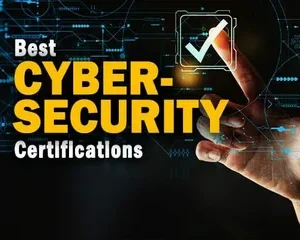Introduction
Are you a new graduate yearning for a profession that suits you, adventure, and international experiences? A visa for digital nomads might be your passport to success. With the help of these visas, you may live and work legally overseas and carry out your remote job from any location. Consider remote startup employment in Seoul or freelancing from Lisbon. Digital nomad visas are in high demand in 2025, with more than 50 nations now offering them. For graduates, this implies that their degree is more than simply documentation; it becomes their passport. nypost.com+4nomadsembassy.com+4freelancermap.com+4thesun.iebusinessinsider.com+15citizenremote.com+15deel.com+15immigrantinvest.com+1nomadsembassy.com+1businessinsider.com+4cntraveler.com+4nypost.com+4ft.com+1cntraveler.com+1.
Choosing the Right Country
Not all digital nomad visas are created equal. Let’s explore top picks:
Portugal
-
D8 Visa: For remote employees or freelancers.
-
Income minimum: €3,480/month deel.com+5cntraveler.com+5fragomen.com+5ft.com+15citizenremote.com+15nomadsembassy.com+15.
-
Enjoy Lisbon’s vibrant culture, co-working hubs, and EU travel access.
Spain
-
Requires 200% of national minimum wage monthly, plus a degree or 3 years of experience nomadsembassy.com+3businessinsider.com+3citizenremote.com+3.
-
Great if you’ve studied locally or hold an EU-recognized diploma!
Italy
-
Annual income ~€30,000 needed, plus 3+ years of experience or a degree .
-
One-year renewable visa with family access and health insurance.
Brazil
-
Monthly remote income of $1,500, or $18,000 in savings citizenremote.com+1freelancermap.com+1en.wikipedia.org.
-
12-month residence, with a lively digital nomad community.
Philippines
-
Just launched in early 2025 with one-year remote stay plans nomadsembassy.com.
-
Requires proof of remote work, income, insurance, clean record.
Basic Eligibility Criteria
Most visas share these core requirements:
-
Remote work or freelancing proof—contract, clients, or business registration.
-
Minimum income or savings—country-specific (e.g., €3.5k or $1.5k).
-
Health insurance—covering entire stay.
-
Clean criminal record and valid passport.
Step-by-Step Application Process
Step 1: Research & Shortlist
Choose the country whose income and requirements you can meet—and whose culture inspires you.
Step 2: Prepare Documents
-
Passport valid for at least 6 months
-
Remote work proof (contract or invoice)
-
Bank statements or payslips
-
CV or diploma
-
Health insurance certificate
-
Accommodation proof
Step 3: Submit Application
-
Apply online or via embassy
-
Handle translations, attestation, apostilles where necessary
Step 4: Interviews & Fees
-
Pay visa fee (~€75–120)
-
Attend in-person if required
Step 5: Approval & Arrival
-
Receive visa, book flight
-
Register residency (some countries require within 30 days)
Country-Specific Tips
-
Portugal: Apply via Portuguese consulate or online. Can include spouse and children. Build path to permanent residency businessinsider.com+5citizenremote.com+5freelancermap.com+5cntraveler.com+1nypost.com+1fragomen.com+3iasservices.org.uk+3nomadsembassy.com+3.
-
Spain: Degree or work experience essential plus high income threshold immigrantinvest.com+10businessinsider.com+10deel.com+10.
-
Italy: Highly skilled visa with €30k income and healthcare. Apply at consulate first cntraveler.com+5deel.com+5nypost.com+5.
-
Brazil: Choose monthly income option or lump-sum savings . Permit renewable.
-
Philippines: Stay updated—first applications expected later in 2025 cntraveler.com.
Life After Arrival
-
Visa holder responsibilities: Register address, apply for permits within 30 days in EU countries.
-
Find co-working and network via Meetup, Instagram, or cowork hubs.
-
Taxes: Most digital nomad visas exempt you from paying host-country taxes for six months. After that, consult a tax advisor en.wikipedia.org+7immigrantinvest.com+7citizenremote.com+7.
Tips & Common Mistakes
-
Check visa rules (e.g., renewability and family access).
-
Prepare finances—clearly show salary or savings in bank statements.
-
Get international health insurance early—mandatory in many places.
-
Follow procedure—late registrations or gaps can affect visa compliance.
Benefits for Recent Graduates
-
Experience-rich lifestyle: Real-world casework abroad versus classroom learning.
-
Cost-effective living: Work US- or EU-level wages in affordable markets.
-
Cultural immersion: Live and work within new cultures, languages, and customs.
-
Lasting career edge: Showing independence, initiative, and adaptability speaks volumes to future employers.
Conclusion
In addition to travel, digital nomad visas provide chances for self-improvement, career progression, and global networks. Recent graduates in 2025 represent a major shift from academia to international impact. With the right planning and documentation, it is possible to transition to remote living abroad legally and successfully. Leap in, design your own path, and build an unbounded career.
Frequently Asked Questions
How much income do I need?
Depends on destination. Portugal: ~€3,480/month; Italy: ~€30,000/year; Brazil: $1,500/month or $18,000 savings.
Can I include family on my visa?
Yes—most countries allow dependents, though they may increase the income requirement (e.g., Portugal) immigrantinvest.com+1citizenremote.com+1.
Do I pay taxes in the host country?
Typically no for the first 6–12 months. But consult local tax laws to avoid surprises .
What if I lose my remote job?
Many visas require continuous remote income. Losing a job may require residence updates—or even departure. Keep backup plans.
Can I apply on a tourist visa?
No—most digital nomad visas must be applied from your home country before travel.
Final Resource
Here’s a helpful YouTube video explaining digital nomad visas, including Philippines’ new program:
Digital Nomad Visas Explained (Fragomen)







